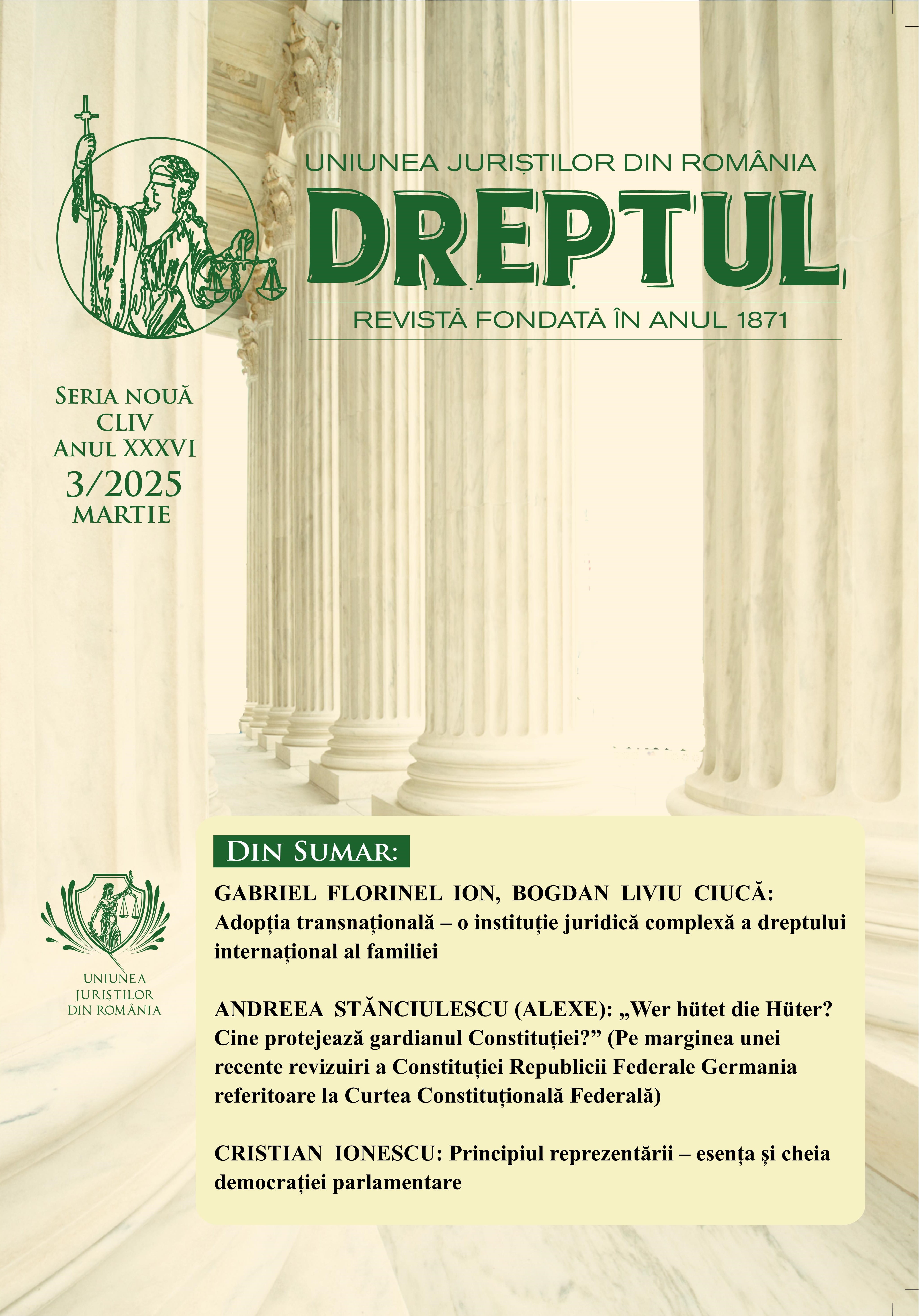Încetarea de drept a contractului individual de muncă al personalului didactic din învățământul superior. Compatibilitatea art. 219 alin. (1) din Legea nr. 199/2023 cu Directiva 2000/78/CE
Termination of the individual employment contract of academic staff in higher education. Compatibility of Article 219(1) of Law no. 199/2023 with Directive 2000/78/EC
Author(s): Elena Daniela OprescuSubject(s): Law, Constitution, Jurisprudence, Civil Law, Labour and Social Security Law
Published by: Uniunea Juriștilor din România
Keywords: Article 219, paragraph (1) of Law no. 199/2023; Directive 2000/78/EC; age-based discrimination; automatic termination of the individual employment contract; retirement of teaching;
Summary/Abstract: Establishing an age for the automatic termination of an individual employment contract may represent a form of direct discrimination on the grounds of age, according to Article 2, paragraph (2), letter (a) of Directive 2000/78/EC, in the absence of fulfilling the conditions regarding a legitimate aim and the appropriate and necessary means for achieving that aim, as provided by Article 6 of the directive.Law no. 199/2023 on higher education derogates from the general provisions of the Labor Code regarding the automatic termination of the individual employment contract for teaching and research staff in higher education; thus, unlike general law, this legislative act does not condition the automatic termination of the individual employment contract of the mentioned staff, upon reaching the age of 65, on the existence of a pension entitlement.I consider that there is no legitimate purpose for which the legislator did not condition the automatic termination of employment relationships on the existence of a pension entitlement. Firstly, an analysis of both national general law and special laws shows that the rule is represented by conditioning the automatic termination of employment relationships on a pension entitlement. Secondly, we note that, by mutual agreement, the employment contract of teaching and research staff may continue even after the age of 65, without the legislator specifying a maximum age limit. Therefore, since the continuation of employment relationships is allowed for an indefinite period, even after reaching the age at which employment relationships automatically terminate, we cannot conclude that the purpose of this provision is to promote the professional integration of young people or to achieve age diversity.Since the legislator has not indicated the reason why the conditions for the automatic termination of employment relationships for teaching and research staff must differ from those applicable under general law, or those applicable to specific professional categories, and these reasons are not evident within the context of national law, we conclude that there is no reasonable justification for the different treatment instituted by Article 219, paragraph (1) of Law no. 199/2023, which is discriminatory.
Journal: Revista „Dreptul”
- Issue Year: 2025
- Issue No: 03
- Page Range: 62-72
- Page Count: 11
- Language: Romanian
- Content File-PDF

